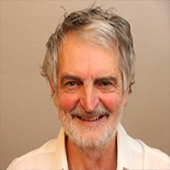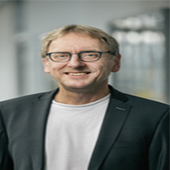

KIU implements Bachelor of Science program in Computer Science. Program is implemented in English language. KIU welcomes International students.
KIU offers Bachelor of Science program in Computer Science.
Degree Awarded
Bachelor of Science (BSc) in Computer Science.
Language of instruction
English.
Note: Students can be provided with academic support courses in English language, in case of need during their studies at KIU.
Accreditation
• Program developed in partnership with TUM and TUM International;
• Program approved by International Advisory Board;
• Georgian accreditation equivalent obtained.
Program Goals
Graduates of the bachelor’s program in Computer Science will be able to.
Goal 1. Apply mathematical foundations, algorithmic principles and computer science theory in the design of computer-based systems and demonstrate the trade-offs involved in design choices.
Goal 2. Apply a broad understanding of the fundamental theories, concepts, and applications of computer science along with ethical principles in their professional career.
Goal 3. Use communication, teamwork and leadership skills effectively in the development of complex software systems.
Goal 4. Attain recognition of the need for an ability to engage in continuing development of their professional knowledge and skills.
Future careers in this profession
Graduates of the bachelor’s program in Computer Science go on to begin an exciting career in the fields of software engineering, research, and IT consultancy in Georgia as well as internationally.
They can find employment in every industrial and economic sector, whether related to mechanical or electrical engineering, mathematics, or medicine. Some examples include the design of complex information systems for commercial use, programming robots, building data networks between banks and corporations, of developing traffic control systems.
Opportunities
• Professors from TUM and other international universities from abroad
• Seminars and interactive teaching
• Access to worldwide library system electronically
• Modern and high tech infrastructure with state of the art facilities
• Individual, student centered approaches of teaching, delivery of seminars and establishing lifelong learning,
continuous development practices
• Internship at national and international companies.
Major in Computer Science
Concentrations:
• Language Based Technologies
• System Architecture
• Digital Systems
• Databases
• Logic and automated reasoning
• Software Engineering
• Distribution Networks, Computer networks
• Artificial Intelligence
Specialization via electives
1. Two Concentrations
2. Seminar, Elective Courses
3. Intership, Bachelor thesis
Computer Science Minor Program
To be chosen as an addition to the Major in Mathematics or Management.
BSc Degree Requirements:
• 240 ECTS credits
• Internship
• Capstone Project
 Prof. Dr. Wolfgang J. Paul
Prof. Dr. Wolfgang J. Paul
Wolfgang Paul was born in 1951. At age 22 he completed his PhD in Theoretical Computer Science at Saarland University. He was a post doc at Cornell University working in complexity theory and then became a tenured associate professor of mathematics at the University of Bielefeld at age 25. After finishing a professional cooking degree at a Michelin 1-star restaurant he worked from 1982 to 1986 as a Research Staff Member in the Theory Group and the Physics Department of IBMs Almaden Research Lab. From 1986 to 2016 he was a full professor for Computer Architecture and Parallel Computing at Saarland University, where he served as the Chairman of Computer Science, Dean of Engineering and Acting Head of the universities computing center. From 2003 to 2007 he was the Scientific Coordinator of the projects 'Verisoft' and 'Verisoft-XT', two large projects aiming at the pervasive formal verification of entire computer systems from the gate level to the applications. From 2016 to 2020 he was a Senior Professor at Saarland University. Since August 2020 he is a Professor of Computer Science at Kutaisi International University.
Wolfgang Paul holds an IBM invention achievement award, a Leibniz Award, an honorary doctorate degree from Pacific State University (Russia) and is a member of Academia Europaea. He has successfully supervised 65 PhD students many of which had distinguished careers in academia and industry.
His professional research interests include Hardware Design, Computer Architecture, Formal Verification of Processors and Microkernels.
Wolfgang Paul has a driver’s license for motorcycle and a black belt in Karate.
 Prof. Dr. Helmut Seidl
Prof. Dr. Helmut Seidl
Helmut Seidl graduated in Mathematics (1983) and received his Ph.D. degree in Computer Science (1986) from the University of Frankfurt/Main, Germany. He received his Dr. Habil. (1994) from the University of Saarbrücken. From 1994 until 2003 he was full Professor at the University of Trier. Since then he holds the chair for "Languages and Specification Formalisms" at TU München.
From 2009 to 2018 he was the speaker of the research training group PUMA ("Programm- Und Modell-Analyse") and now is speaker of the research training group ConVeY ("Continuous Verification of CYber-Physical Systems").
From 2013 to 2019 he was the Dean of Studies at TUM. In that period, he was involved in installing a quality management infra-structure and has helped to establish course programs for Games Engineering as well as Data Engineering. He himself has taught courses on Object-oriented Programming with Java, Functional Programming with Ocaml, a course on Fundamentals of Algorithms and Data-structures as well as a variety of advanced courses in the area of Compiler Construction.
His research agenda aims at improving safety and security of systems. He has made technical contributions to the static analysis of programs by abstract interpretation and model checking. He has developed efficient generic fixpoint algorithms, expressive domains for numerical invariants. He is interested in the analysis of concurrent and parametric systems as well as of safety critical C programs. He has also worked on information flow analysis, the analysis of cryptographic protocols, and technical formalisms for that such as tree automata and Horn clauses.
Tuition Fee and Living Costs for International students:
• Tuition fee is 16000 GEL (5500 US$ equivalent, the sum includes all teaching materials);
• Living costs is 5000 US$/year.